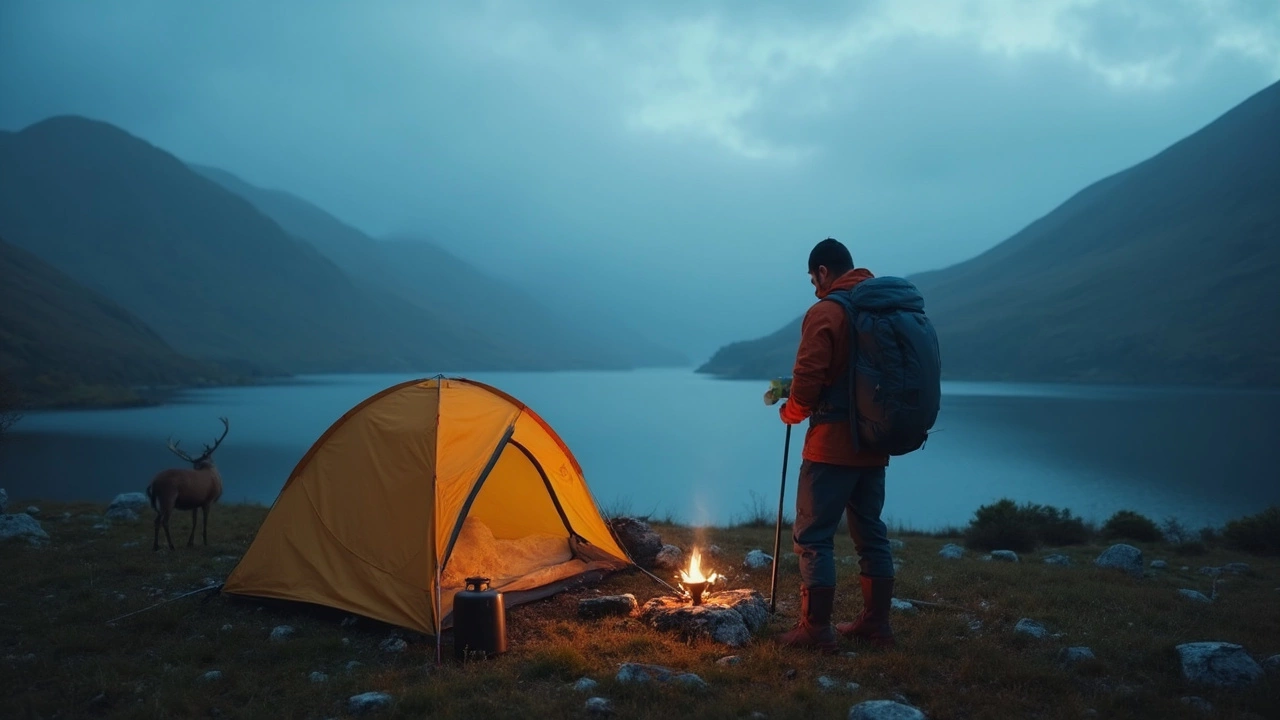Wild Camping Rules You Need to Know Before You Pitch Your Tent
Thinking about sleeping under the stars in the UK? You probably love the idea of total freedom, but a quick check on the rules can save you a nasty fine or a forced move. Here’s a no‑fluff rundown of where you can camp, what the law actually says, and smart ways to keep things legal and low‑key.
Where Is Wild Camping Allowed?
In England and Wales, the default rule is that you need the landowner’s permission. That doesn’t mean you can’t find spots – just look for places that openly welcome campers. National Trust properties, some Scottish Highland estates, and many coastal areas have designated wild‑camping zones. Scotland is the outlier: the Scottish Outdoor Access Code lets you camp on most unenclosed land unless it’s clearly prohibited.
Practical tip: use the publicly shared maps on forums or apps like iOverlander. They show recent reports of friendly spots, so you avoid walking into a private garden.
Key Legal Points to Keep in Mind
1. Leave No Trace. The law isn’t just about permission – it’s also about protecting the environment. Pack out all litter, cover any fire scars, and avoid damaging flora.
2. Stay short‑term. Even on permissive land, staying longer than a night or two can be seen as trespassing. Pack up and move on before you become a nuisance.
3. Check local byelaws. Some coastal towns have strict beach‑byelaws that forbid overnight stays. Ignoring them often leads to a fixed‑penalty notice.
4. Mind the fire rules. Open fires are banned in many areas, especially during dry spells. Use a portable stove instead.
5. Respect signage. If you see a “No Camping” sign, obey it. Even if you think the spot looks harmless, the sign is there for a reason.
Following these basics keeps you out of trouble and makes it easier for other campers to find spots later.
Now, let’s talk about the practical side of staying legal while still enjoying the wild. First, always carry a small notebook or use a notes app to log the exact location, the landowner’s name (if you can find it), and the time you arrived. If a landowner asks you to move, thank them and head to the next spot – it’s better than a confrontation.
Second, be mindful of local wildlife. In Scotland, for example, you might encounter protected bird nests. Give them space; moving a few meters away can avoid accidental disturbance charges.
Third, consider using a low‑impact tent or a bivvy sack. They leave a smaller footprint and are less likely to draw attention. A quick tarp setup can also work well on moorland where the wind is strong.
Finally, if you’re unsure whether a spot is allowed, knock on the nearest door or leave a polite note for the property owner. Most people appreciate honesty and will often let you stay if you’re respectful.
Bottom line: wild camping in the UK isn’t a law‑less free‑for‑all, but with a little common sense you can enjoy the freedom it promises. Stick to the rules, leave the place as you found it, and you’ll be able to keep chasing those sunrise views without a ticket hanging over your head.
Wild Camping UK: Where Are You Actually Allowed To Pitch Your Tent?
Thinking about wild camping in the UK? The rules change depending on where you go—Scotland is famously relaxed, but England and Wales? Not so much. This guide cuts the fluff and gets right to the heart of where you can go, what you need to know, and how to avoid angry landowners or a run-in with the law. Real, up-to-date info, plus tips to keep your camping trip smooth and drama-free. If you’ve ever wondered how to camp wild in the UK without hassle, this is your cheat sheet.
